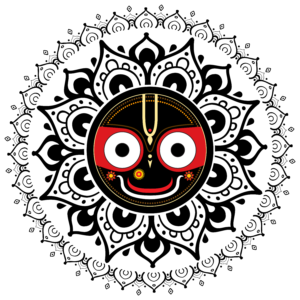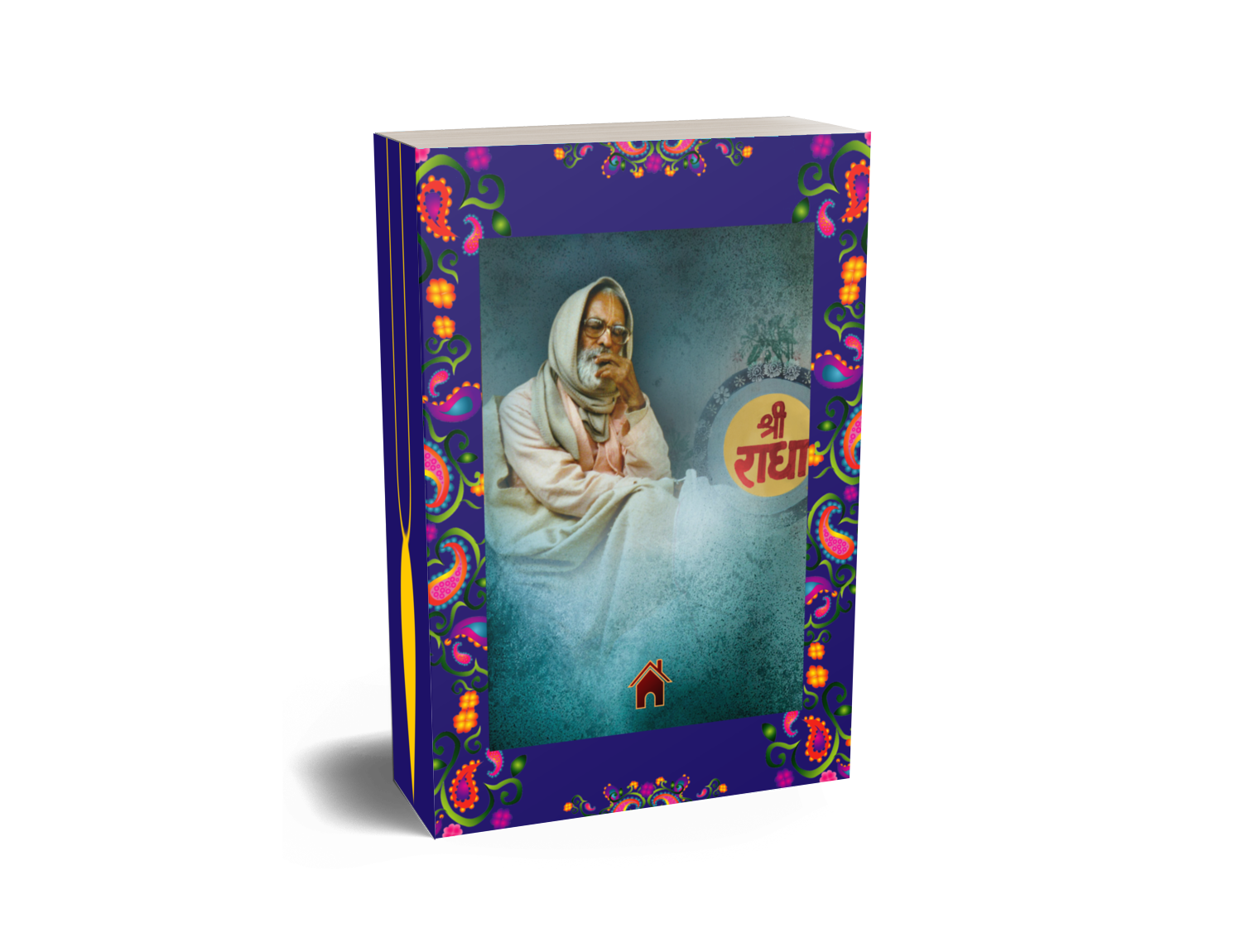

The following is a transcription of a discourse delivered by Śrīla Bhaktivedānta Nārāyaṇa Mahārāja in Mathurā, India, on April 12, 2000
Rāma-kathā is endless. Saṅkarṣaṇa (Lord Anantadeva) himself continuously sings the glories of Śrī Rāma. But even with unlimited mouths he is unable to touch the end in any way. We can just relish, and pray that these infinite pastimes may appear in our hearts. Tulasī dāsa has written Rāma-carita-mānasa, which is based on Śrī Vālmīki’s Rāmāyaṇa. All the pastimes written by Tulasī dāsa come from the Rāmāyaṇa and other Purāṇas, but the principles of bhakti which he gave in Rāma-carita-mānasa have been taken from Śrīmad-Bhāgavatam. He presented important selected verses, especially from the eleventh canto, and translated them into Hindi poetry.
Some people consider Tulasī dāsa to be a Māyāvādī, but this is not correct. If we study Rāma-carita-mānasa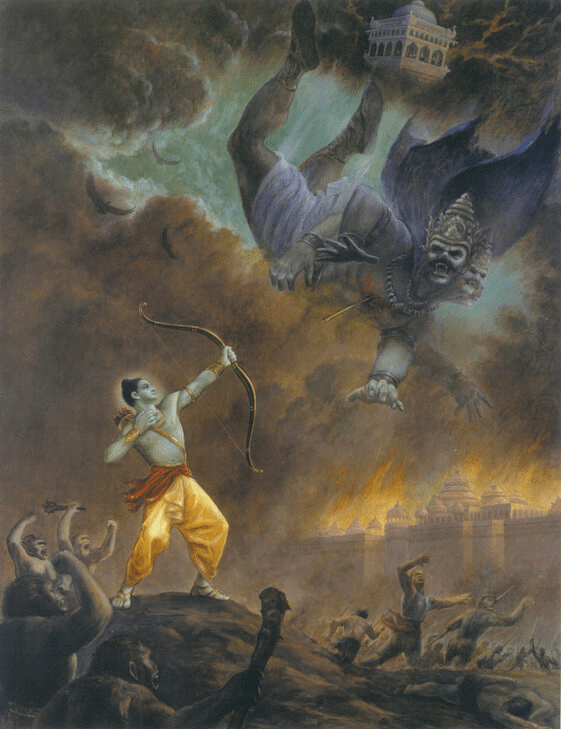 carefully, we can see that Tulasī dāsa has written down the same principles that are in Śrīmad-Bhāgavatam. God is personal, the living entities are His parts and parcels, and our eternal constitutional position is to serve Him with love and affection. Another important point is that Tulasī dāsa could not have written Rāma-carita-mānasa unless he truly saw all these pastimes of Rāma. Just as Vālmīki received the mercy of Nārada Muni, similarly, when Tulasī dāsa sat down in trance, all the pastimes came into his heart. He has certainly received the mercy of Vyāsadeva. Only by Śrī Vyāsadeva’s mercy could he have written these pastimes.
carefully, we can see that Tulasī dāsa has written down the same principles that are in Śrīmad-Bhāgavatam. God is personal, the living entities are His parts and parcels, and our eternal constitutional position is to serve Him with love and affection. Another important point is that Tulasī dāsa could not have written Rāma-carita-mānasa unless he truly saw all these pastimes of Rāma. Just as Vālmīki received the mercy of Nārada Muni, similarly, when Tulasī dāsa sat down in trance, all the pastimes came into his heart. He has certainly received the mercy of Vyāsadeva. Only by Śrī Vyāsadeva’s mercy could he have written these pastimes.
The main topic of this class is ‘anyābhilāṣitā-śūnyaṁ’; freedom from desires other than the desire to please Kṛṣṇa. Bharata and Śatrughna had gone to their maternal uncle’s place, and upon returning to Ayodhyā, they noticed that all was silent. Nothing was going on. Usually the city was cheerful and so many activities were joyfully taking place, but now the city was like a lady whose husband is dead and who wears no decorations or ornaments. Seeing these and other inauspicious omens, Bharata and Śatrughna became fearful. When they entered the royal palace and went to Kaikeyī’s chamber, they were stunned to hear how Rāma had gone to the forest for fourteen years and, because of that, their father had died of a broken heart. When Bharata heard this news and the reason for it, he became completely inimical towards his mother. From his heart he disconnected his relationship with her, and because of his pain and shock, he spoke harshly and abandoned her.
Bharata later assembled the citizens of Ayodhyā, including Kauśalyā and Vasiṣṭha Ṛṣi, and went to the forest to 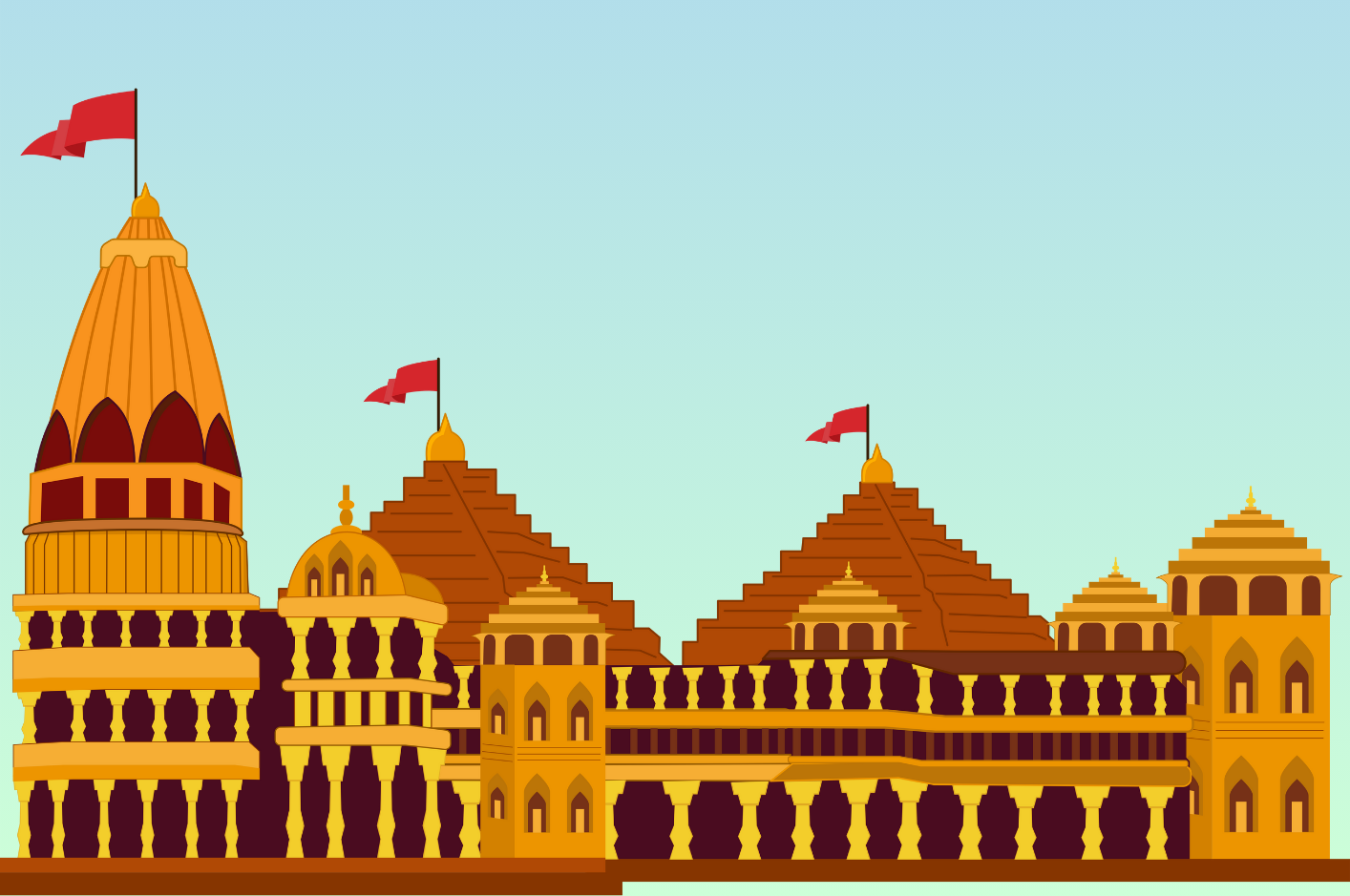 try to bring Lord Rāma back. Because he was now the eldest member of the family, he was responsible for deciding what to do. Mahārāja Janaka would be holding a sabhā, an assembly meeting, on the next day. To prepare for this, Bharata first went to Mother Kauśalyā and requested her, “O mother, Rāma loves you and always obeys your orders. You miss Him so much, and we all want him back. Please ask him to return and live happily and rule here in Ayodhyā.” When Kauśalyā heard these words she said gravely, “Yes, you are right. I also want this but I but I cannot do what you ask. Your suggestion is not against dharma, but now you should look at Rāma’s position. According to religious principles, He is also trying to execute the order of your father. From your respective positions you are both trying to act righteously. I’m sorry, but I know He will never change His decision, so I cannot do anything.”
try to bring Lord Rāma back. Because he was now the eldest member of the family, he was responsible for deciding what to do. Mahārāja Janaka would be holding a sabhā, an assembly meeting, on the next day. To prepare for this, Bharata first went to Mother Kauśalyā and requested her, “O mother, Rāma loves you and always obeys your orders. You miss Him so much, and we all want him back. Please ask him to return and live happily and rule here in Ayodhyā.” When Kauśalyā heard these words she said gravely, “Yes, you are right. I also want this but I but I cannot do what you ask. Your suggestion is not against dharma, but now you should look at Rāma’s position. According to religious principles, He is also trying to execute the order of your father. From your respective positions you are both trying to act righteously. I’m sorry, but I know He will never change His decision, so I cannot do anything.”
Disappointed, Bharata now went to his Gurudeva, Vasiṣṭha Muni, and made the same request, “If you order Rāma, He will come back and you will be the cause of everyone’s happiness.” Vasiṣṭha Muni’s answer was similar to Kauśalyā, but he presented an alternative. “Instead of Rāma, if you agree to go to the forest, perhaps I can make him return to Ayodhyā. Someone must go, so you can do it.” Bharata very enthusiastically agreed, but when Vasiṣṭha presented the proposal to Rāma, he could not change His decision. Again, Bharata was disappointed.
Bharata thought his only remaining shelter was Sunayanā devī, the wife of Mahārāja Janaka. He visited her on the evening before the sabhā and very politely pleaded at her feet, “Mother, are you not worrying about your daughter? She is so gentle and tender, and she is going to the forest for fourteen years where she must perform severe austerities. I know your heart is so soft, you cannot bear this pain. You must do something to help them.” Sunayanā replied, “What you are saying is what I also want. But my husband is very strict and he will never change his mind nor hear my words. He will consider both sides as per the principles of religion, and then he will give his decision. He is a liberated soul, and nobody can influence him.” Because Janaka Mahārāja was a jñānī-bhakti, a devotee with some aiśvarya, he knew well that there would never be a problem for Rāma — anywhere He would be. Bharata was again disappointed, but there was nothing he could do.
The next morning Guru Vasiṣṭha convened the assembly. On one side Lord Rāma was sitting with Sītā-devī, and on the other side Bharata was sitting with all the citizens of Ayodhyā, and Mahārāja Janaka was on the āsana in the middle to hear the case and give the decision. The evening before, all had agreed to abide by the order of Mahārāja Janaka because he knew religion and was impartial.
He first inquired from Bharata, “What is your proposal? Please speak.” With folded hands, Bharata said, “All I want is that Lord Rāma shall come back to the kingdom. His father has given his order but under unfortunate circumstances. Mahārāṇī Kaikeyī also became influenced, and she participated in this decision. This should not be considered as the ultimate decision, because now we can see that there is no real purpose for them to go to the forest. I am not going to accept the position of the king. By all evidence it belongs to Rāma. This is what all the citizens want, and I also want it. It will be a great injustice if we send Him to the forest and don’t give Him this position.”
Mahārāja Janaka was silent. He then turned to Lord Rāma and asked Him to speak. Rāma then said, “Yes, you have heard what Bharata said. My father agreed with the order to send Me to the forest and to give the position of king to Bharata. Mother Kaikeyī jointly participated, and my father kept silent. ‘Maunaṁ sammati–lakṣaṇam’. Silence is the symptom of agreement or consent. Now Kaikeyī wants to retract her statement, but that cannot be accepted. Why? Because my father is here no more. If he had been here and just remained silent, then I could agree. But that is not the situation. That is what I have to say.”
Mahārāja Janaka closed his eyes and went into silent meditation upon his Gurudeva, Lord Śaṅkara. After 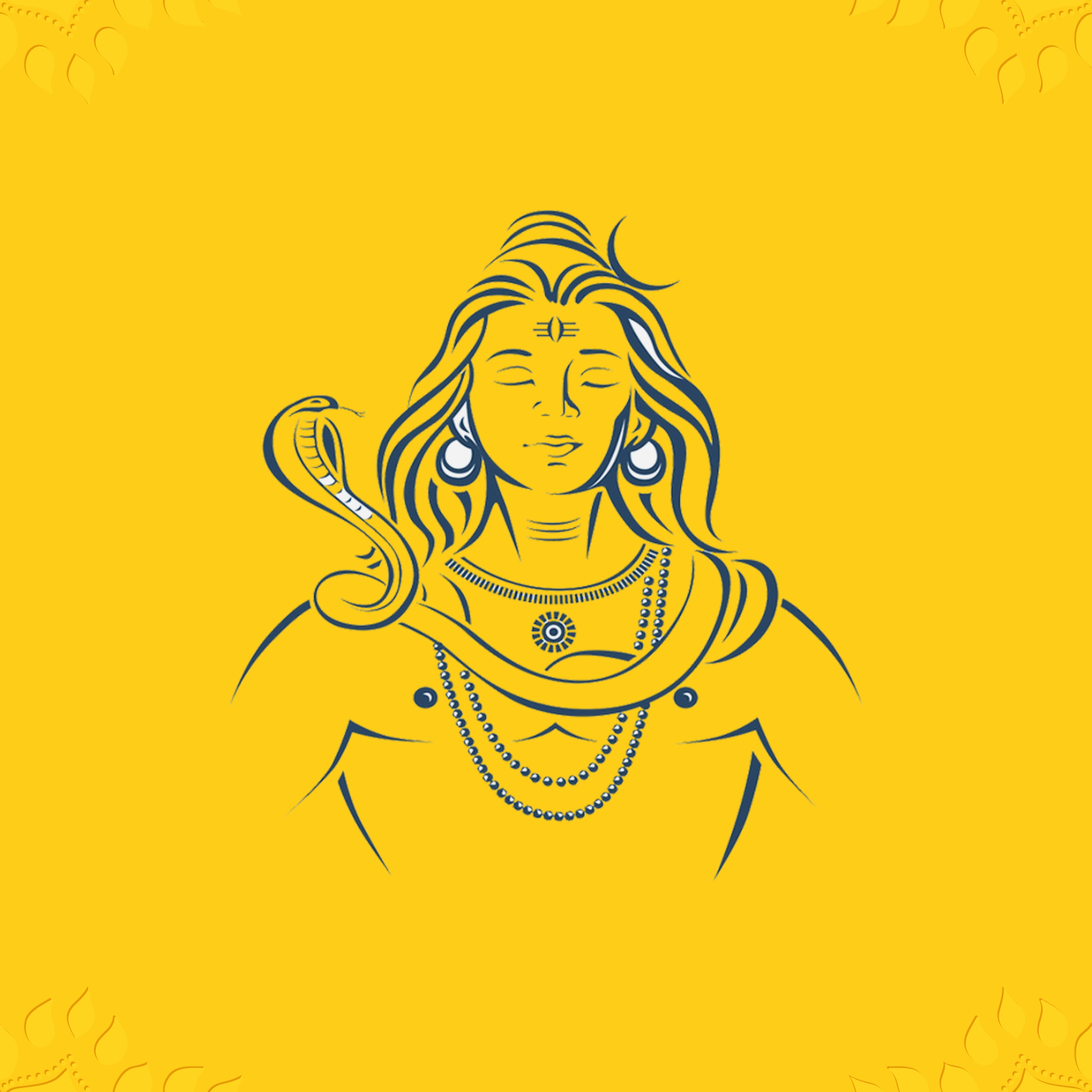 coming out of his meditation he very gravely began to speak, “Yes, what Bharata has said is true and is according to religious principles. He is speaking with a pure feeling of love. His prema for Rāma is very deep, like an ocean, and Rāma’s maryādā, His adherence to dharma and strictness in following the principles of religion, is like a mountain. Bharata’s ocean of love is so deep that the mountain will sink into that ocean. Bharata has won, and whatever is his decision shall be done.” When everyone heard that Rāma would now come back, they all began jumping in ecstasy. Bharata was also happy.
coming out of his meditation he very gravely began to speak, “Yes, what Bharata has said is true and is according to religious principles. He is speaking with a pure feeling of love. His prema for Rāma is very deep, like an ocean, and Rāma’s maryādā, His adherence to dharma and strictness in following the principles of religion, is like a mountain. Bharata’s ocean of love is so deep that the mountain will sink into that ocean. Bharata has won, and whatever is his decision shall be done.” When everyone heard that Rāma would now come back, they all began jumping in ecstasy. Bharata was also happy.
However, Mahārāja Janaka had something else to say. All could see that he was still very grave, and they were waiting to see what would come from his mouth. He said, “Though the ocean of Bharata’s love is so deep that Rāma’s mountain of maryādā has sunk into it, at the same time this mountain is so strong that it will not deviate even an inch, even if it is drowned in water. It will stay in its position. Rāma may be overcome by the love of Bharata, but he will not move.”
Then he looked at everyone and said, “Now Bharata should consider this point. His love has indeed won, and there is no comparison to his love, but he should know the principle of love. The current of love does not consider any obstacles on the way. It crosses all the general rules and regulations, and there is no principle of religion which controls it. It has its law and tradition.
“The heart and theme of love is that one who loves will always be very careful about the desires of his lover. He will not impose his desires upon his lover, but will instead minutely observe what his worshipable deity wants. That is what must be seen and understood. So my question to Bharata is this: Did you try to understand what Rāma wants, or did you become overwhelmed with your desires? Did you think, ‘If I am unsuccessful in bringing Rāma back, all the citizens will criticize me. Perhaps for my reputation I may be doing this.’ To be only thinking what is pleasing to Rāma is the principle of real love.”
When everyone heard this, especially Bharata, it was as if the earth had slipped under their feet. For some moments Bharata’s breathing was stopped, and it was as though he was deaf and dumb. Mahārāja Janaka continued, “Now you must decide what to do. Your case is strong and you have won; you must tell Rāma what you want Him to do.”
Bharata had now gotten the biggest shock of his life. His whole nervous system had broken due to this lesson about love and his heart and thinking were completely changed. When he approached Rāma, who understood the mood and gravity of his feelings. Rāma said, “Yes, you have won. You want me to rule the kingdom, so I accept your request. I will now act as the King of Ayodhyā. Since I am the king, you must now follow my directions. What should you do? You should let me go to the forest and fulfil the orders of our father. On my behalf, while I am in the forest, you should become My representative and do the needful duties for the kingdom.”
Bharata accepted this, and we cannot understand what kind of happiness he was feeling. So many opposite 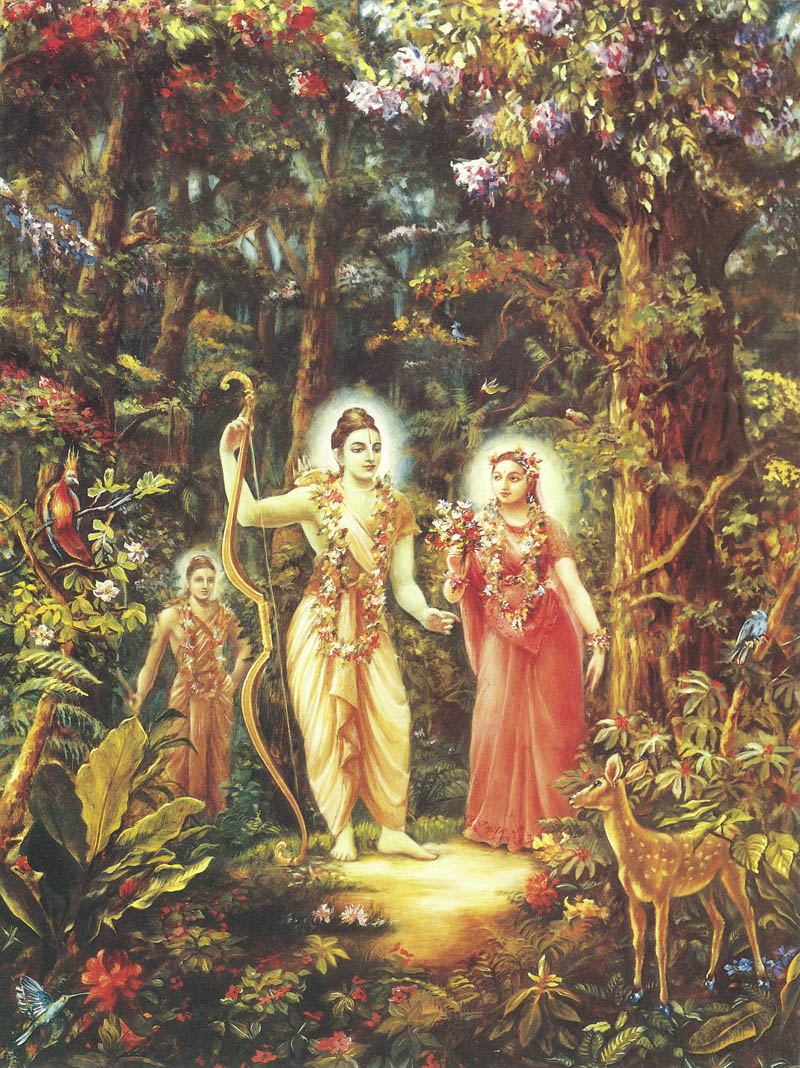 sentiments were coming into his heart and jumping, but he accepted Rāma’s order because now he understood the meaning of love. Even if one has to drink poison to please his lover, one should do this. This is the evidence of pure love. Similarly, when Kaikeyī was requested by Rāma as a child to later banish him and give the kingdom to Bharata, her heart was broken and she cried out, “No, Rāma. I cannot do that.” Why not? She loves Rāma more than Bharata. How could she do that? But Rāma compelled her; He forced her, saying, “You must drink this poison mother, because it is for the welfare of the whole world. This is My purpose for coming here, so you must do this.”
sentiments were coming into his heart and jumping, but he accepted Rāma’s order because now he understood the meaning of love. Even if one has to drink poison to please his lover, one should do this. This is the evidence of pure love. Similarly, when Kaikeyī was requested by Rāma as a child to later banish him and give the kingdom to Bharata, her heart was broken and she cried out, “No, Rāma. I cannot do that.” Why not? She loves Rāma more than Bharata. How could she do that? But Rāma compelled her; He forced her, saying, “You must drink this poison mother, because it is for the welfare of the whole world. This is My purpose for coming here, so you must do this.”
Bharata thus took Rāma’s crown, His wooden sandals, and His rajāī. Rajāī is a Hindi word. Most people, those who are not dedicated to the personal form of Lord Rāma think that rajāī means only ‘quilt’. They say, “Just see how Bharata is so cruel. Rāma had to go to the forest, and Bharata even took his sandals and his quilt.” But rajāī here does not mean quilt. It comes from the word rājī, meaning ‘to agree’. Bharata took the orders of Rāma, to act as His representative and manage the kingdom in His absence.
Here is a very important lesson for all who are practising bhakti. We hear the śloka beginning with “anyābhilāṣitā-śūnyaṁ,” and we can very critically look into our hearts and consider, “What am I doing? Am I trying to serve Kṛṣṇa in the way my mind likes to serve Him?” It is a subtle difference because the mind is very tricky. If we fail to distinguish between these feelings, then anyābhilāṣa, material desires, will cover our bhakti, and there will be no way we can advance. Today, about ninety-nine percent of the devotees are like this. Some do it willfully, and some fail to distinguish the difference. If Gurudeva asks them to do something which is not pleasing to their 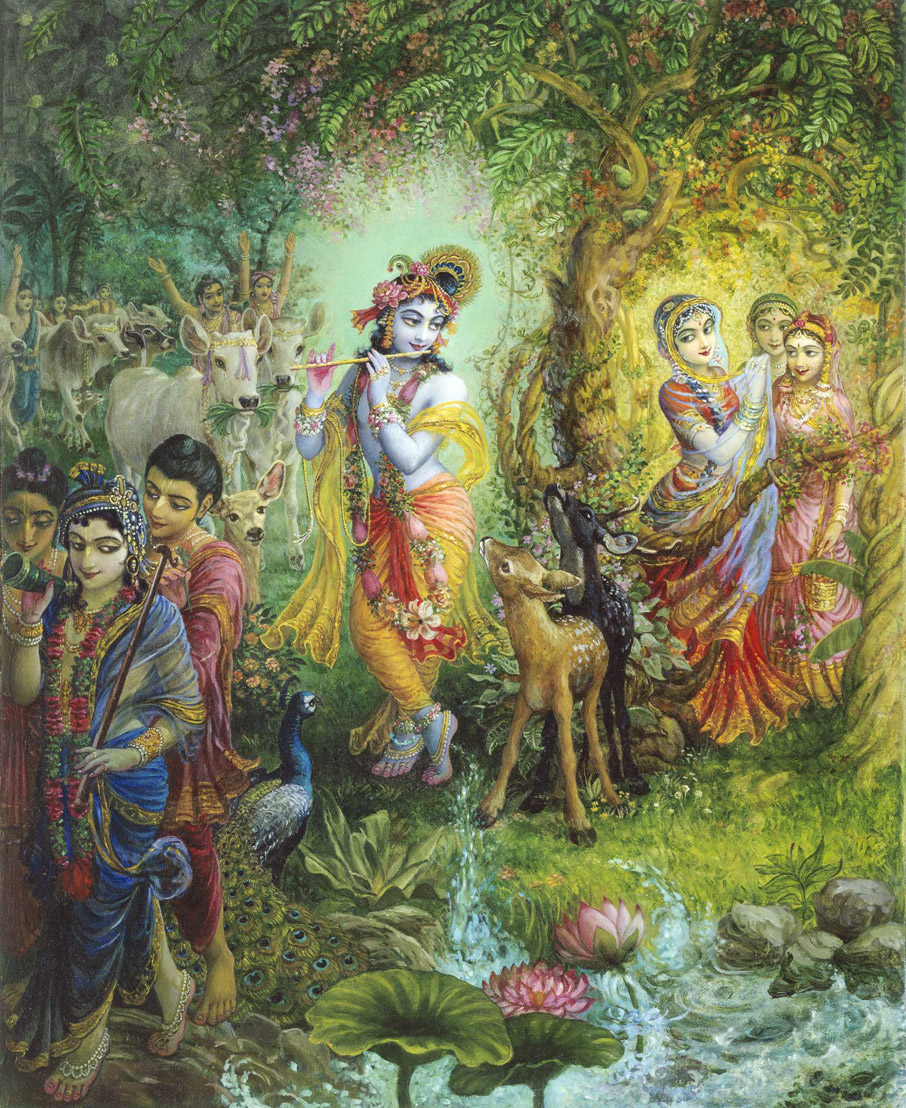 mind, they get angry or annoyed with him. That is prevailing in the majority of cases. We have to very carefully observe this and try to kick out this anyābhilāṣa.
mind, they get angry or annoyed with him. That is prevailing in the majority of cases. We have to very carefully observe this and try to kick out this anyābhilāṣa.
Bhakti is not so cheap. We are trying to attain that love which controls both Śrīmatī Rādhikā and Kṛṣṇa. We must understand what price we have to pay for this. We have to give up everything which we consider to belong to us. We do not have any separate existence of our own. The feeling of unconditional, unalloyed surrender is so deep that we become one with the mood of Gurudeva. Then, within our hearts, all our aspirations are no longer our aspirations. They are Gurudeva’s aspirations, or those of Hari, guru, and Vaiṣṇava. This is the state we are looking to achieve, and unless we attain it, there is no way to advance in bhakti.
Whatever position we want to achieve in eternal Vraja, we have to start practising that here with Gurudeva. We 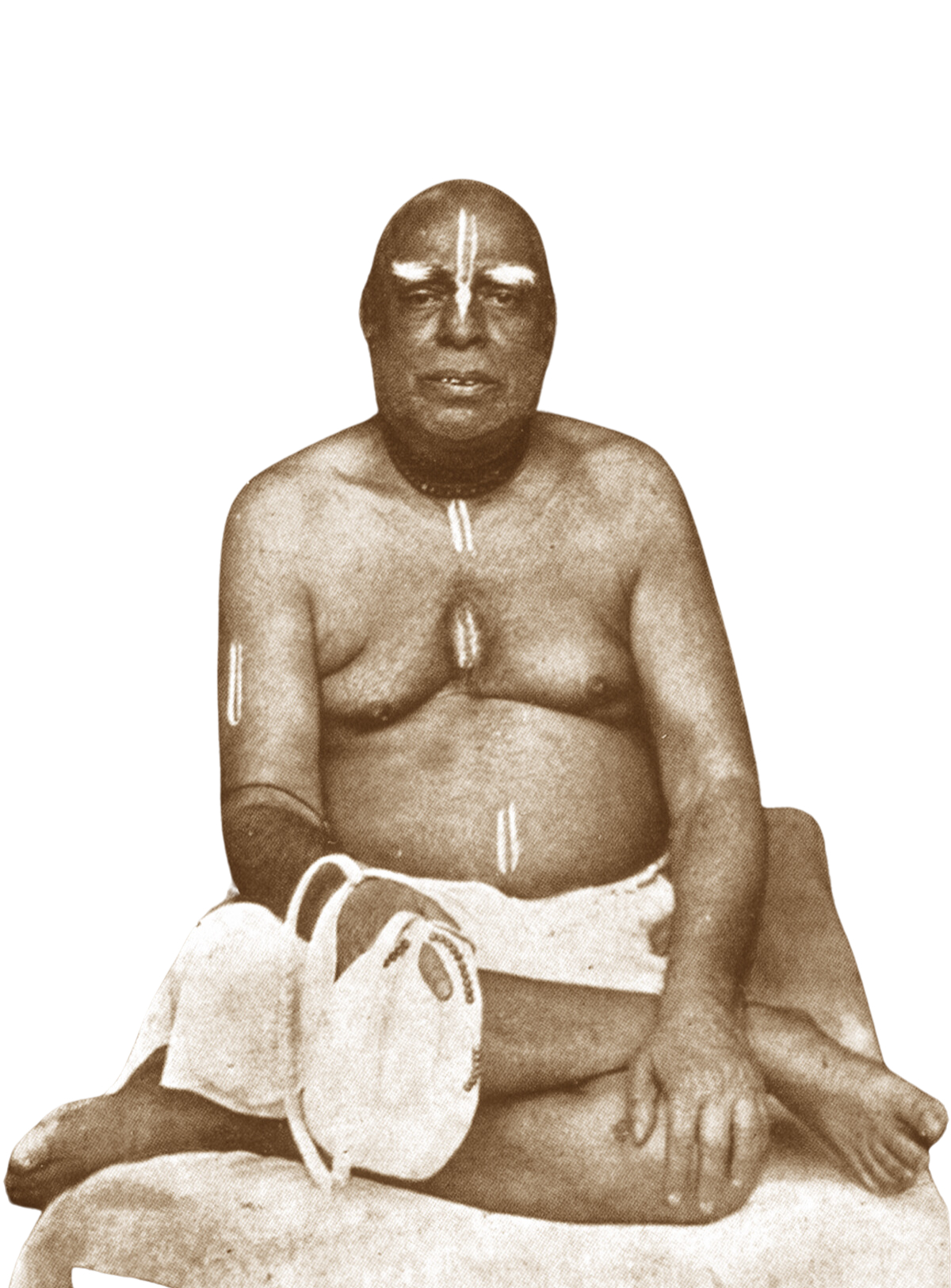 have to apply this verse here, anyābhilāṣitā-śūnyaṁ. Śrīla Bhaktivinoda Ṭhākura has written: “I have happily mixed all my desires in Your desires. My desires follow Your desires. There is no difference. They do not go even to a small degree in a different direction. They are completely in line with Your desires.” This is what we want.
have to apply this verse here, anyābhilāṣitā-śūnyaṁ. Śrīla Bhaktivinoda Ṭhākura has written: “I have happily mixed all my desires in Your desires. My desires follow Your desires. There is no difference. They do not go even to a small degree in a different direction. They are completely in line with Your desires.” This is what we want.
Mahārāja Bharata then returned to Ayodhyā with all his citizens, and he brought the sandals of Lord Rāma. There was so much pain and grief on his return that he did not enter the kingdom. He acted like a representative and stayed in a village near the city, called Nandigrāma. There he made a small hut, like Rāma’s hut in the forest, and took the dress of a renunciate like Rāma. He did not cut his hair, and he lived only on fruits or whatever was available in the forest. He placed those wooden sandals on an altar and began worshipping them, just as if he was worshipping Rāma. He performed ārati, offered food, and made all the decisions based on consultation with those wooden sandals. All his ministers also came there to discuss the ruling of the kingdom.
Once Mother Kaikeyī approached him. Now she suffered still more because she was feeling the separation of 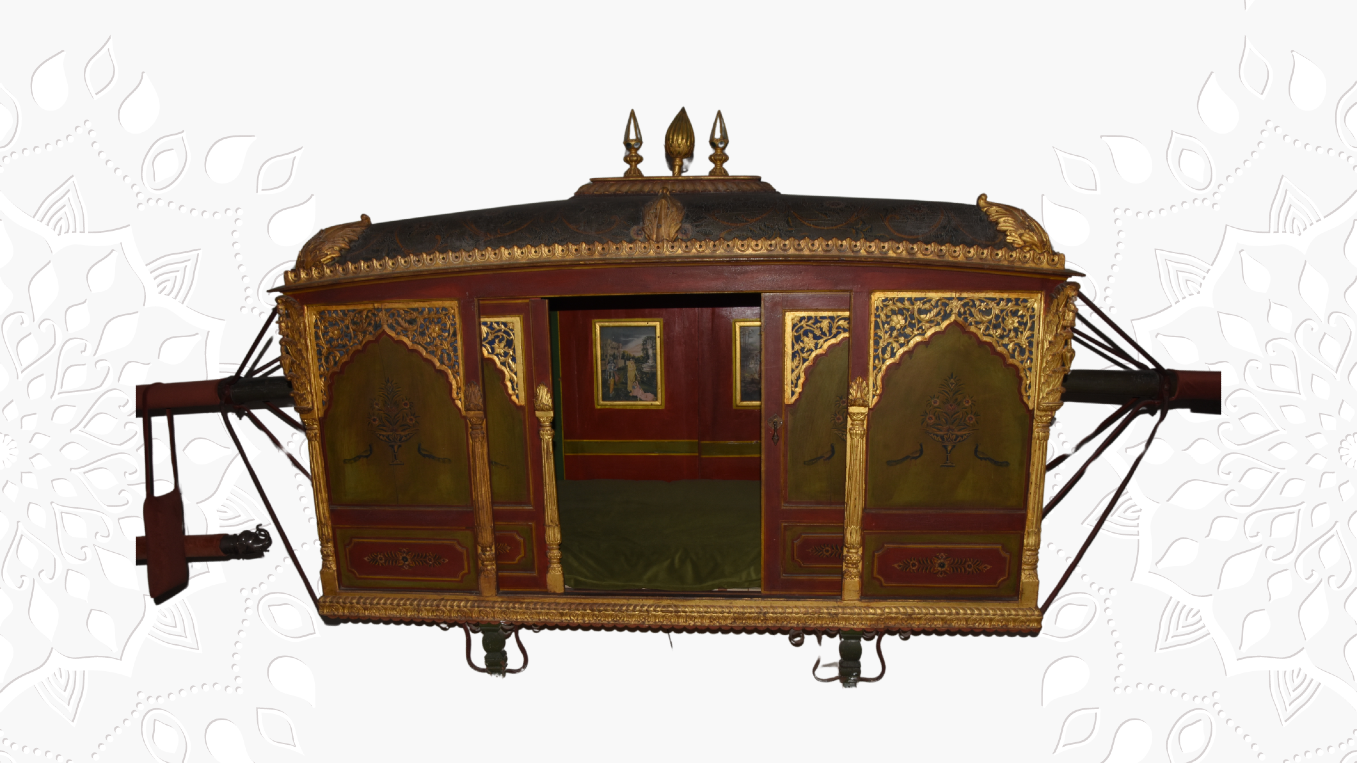 two sons. If Bharata had been there with her, there would be some consolation, but she had lost two. No one can understand her feeling of misfortune. She arrived in a palanquin and called the guards who were there because Bharata rarely came out. He was always absorbed in separation of Rāma. When he was informed that Mother Kaikeyī had come, he said, “All right, you please call Queen Kaikeyī inside.” He never called her ‘mother’. He only considered her as Rājā-mātā, but not as his mother. When she came before him she began crying in great pain and sorrow.”Please forgive me. I have really committed such a big mistake. My intelligence was covered with ignorance. I failed to use my intelligence. Please come back to Ayodhyā and stay there with me.” Bharata said, “O queen Kaikeyī. This is what you deserve. You should taste this more and more. This is the price you must pay.”
two sons. If Bharata had been there with her, there would be some consolation, but she had lost two. No one can understand her feeling of misfortune. She arrived in a palanquin and called the guards who were there because Bharata rarely came out. He was always absorbed in separation of Rāma. When he was informed that Mother Kaikeyī had come, he said, “All right, you please call Queen Kaikeyī inside.” He never called her ‘mother’. He only considered her as Rājā-mātā, but not as his mother. When she came before him she began crying in great pain and sorrow.”Please forgive me. I have really committed such a big mistake. My intelligence was covered with ignorance. I failed to use my intelligence. Please come back to Ayodhyā and stay there with me.” Bharata said, “O queen Kaikeyī. This is what you deserve. You should taste this more and more. This is the price you must pay.”
She said, “Bharata, you don’t know my position. I have to stay in this palace, and this palace is biting me like a  scorpion. It is so painful; I cannot tolerate it any more.” Bharata was so strong and dedicated to dharma that he would not agree. Then she said, “At least, please address me as mother. That will give me some solace.” Bharata replied, “I cannot utter that word for you any more. It is not possible.”
scorpion. It is so painful; I cannot tolerate it any more.” Bharata was so strong and dedicated to dharma that he would not agree. Then she said, “At least, please address me as mother. That will give me some solace.” Bharata replied, “I cannot utter that word for you any more. It is not possible.”
‘Jāke priya na rāma-baidehī*’ This verse from Rāma-carita-mānasa is a translation from a verse in the Bhāgavatam**, which means that one should abandon that wife who is not favourable to bhakti, one should abandon that husband who is acting as an obstruction on the path of devotion, one should abandon that father, that son, that brother and so on. Any relationship that obstructs bhakti should be given up. Vibhīṣaṇa gave up his brother Rāvaṇa, because he had no love for Rāma. Prahlāda gave up his father Hiraṇyakaśipu, and Bali Mahārāja gave up his guru.
Mīrābāi wrote a letter to Tulasī dāsa about her circumstances regarding her performance of devotional activities for Kṛṣṇa. Her family, and especially her husband, the Rāṇā of Mewar, were unfavourable. He would always suspect that she had some illicit connection with a man, but she was absorbed in the love of Giridhārī. She wrote, “I cannot tolerate it any more. They are torturing me. They have given me poison, they have tried to have me bitten by a snake, and they insult me. Please guide me.” Tulasī dāsa wrote this verse to her, and though he did not instruct her specifically, she understood his message.
One day she was deeply absorbed, dancing and singing in kīrtana behind closed doors with Giridhārī there. The 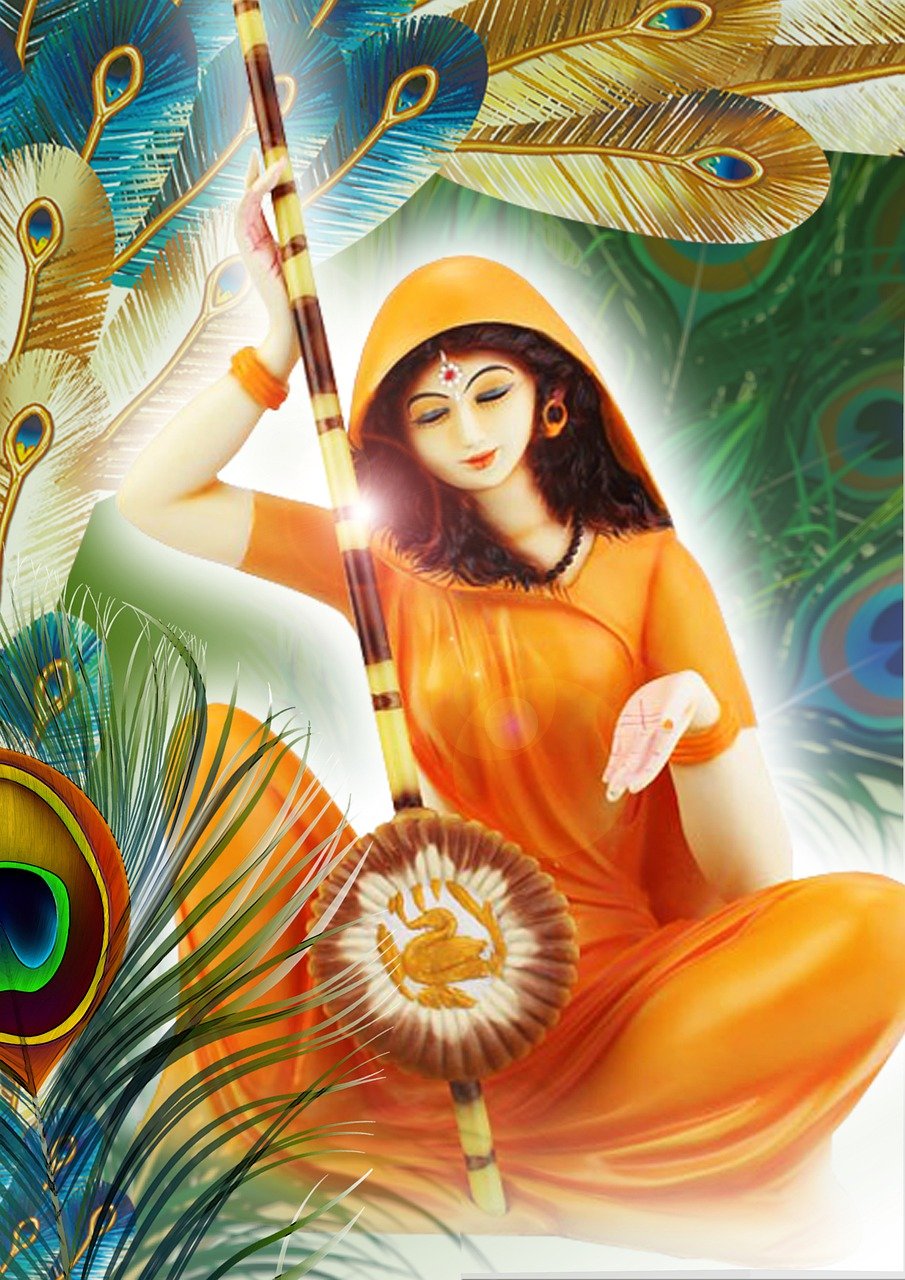 King heard her singing in great jubilation, and he also heard someone playing a flute. With great anger, his sword in his hand, he tried to enter the room, but she did not hear him. Kṛṣṇa was playing the flute, so how was it possible for her to have any external consciousness? When the king entered, he saw that no one else was there with her, and Mīrābāi had fainted. He looked everywhere for the man who was playing the flute. Somehow or other he revived Mīrābāi, and he asked her with harsh words, “Where is that man you have hidden here?” Mīrābāi said, “You cannot see Him? He is standing right there.” “I cannot see him,” he said. Then Mīrābāi mercifully placed her hand on his eyes and, by the touch of her fingers, the Rāṇā was able to see the three-fold bending form of Kṛṣṇa playing the flute. Now taking darśana, he was humbled and also fainted. In the meantime, Kṛṣṇa disappeared. When the Rāṇā came back to consciousness, he so much repented. Lamenting, he fell at the feet of Mīrābāi and again and again begged for forgiveness. He said, “I was so offensive and foolish”.
King heard her singing in great jubilation, and he also heard someone playing a flute. With great anger, his sword in his hand, he tried to enter the room, but she did not hear him. Kṛṣṇa was playing the flute, so how was it possible for her to have any external consciousness? When the king entered, he saw that no one else was there with her, and Mīrābāi had fainted. He looked everywhere for the man who was playing the flute. Somehow or other he revived Mīrābāi, and he asked her with harsh words, “Where is that man you have hidden here?” Mīrābāi said, “You cannot see Him? He is standing right there.” “I cannot see him,” he said. Then Mīrābāi mercifully placed her hand on his eyes and, by the touch of her fingers, the Rāṇā was able to see the three-fold bending form of Kṛṣṇa playing the flute. Now taking darśana, he was humbled and also fainted. In the meantime, Kṛṣṇa disappeared. When the Rāṇā came back to consciousness, he so much repented. Lamenting, he fell at the feet of Mīrābāi and again and again begged for forgiveness. He said, “I was so offensive and foolish”.
Because she had suffered so much, she did not react to his words. She had made up her mind that she must go to Vṛndāvana. She explained that what had happened had happened, and nothing could stop her now. Chanting “Giridhārī Gopāla”, she left for Vṛndāvana. There she met Śrīla Jīva Gosvāmī and she took gopāla-mantra from him. Was she a real disciple of Jīva Gosvāmī? No, she was a half disciple, because she ended up in Dvārakā. She said, “I only see Kṛṣṇa. I don’t see anyone else.” Her vision was not so broad that she could see the gopīs. She failed to accept the guidance of the gopīs, and for that reason she could not get any position in Vraja. She went to Dvārakā, and there she entered into the Deity of Dvārakādīśa and never came out.
This is a very important point for those who want the service of the Divine Couple in Vraja, but who think they can achieve it by following all the principles of vaidhī-bhakti. They are meditating on dvārakā-līlā, and yet they want the service of Rādhā-Kṛṣṇa in Vraja. Because they have such meditation, they will not get a position in Vraja.
If a husband is somewhat following bhakti, he will be very happy if someone else’s wife takes to spiritual life and, becoming completely surrendered, gives up her home. However, if it comes to his wife, he cannot tolerate it. And it is the same with a wife. If someone else’s husband becomes so absorbed that he gives up family life, she says,  “Oh, this is good. You are so fortunate. You have become a pure devotee and your whole family will be delivered.” But when it comes to her husband, it cannot be tolerated. And it is the same with a son and father. This consideration is very bad and should not be done. No one is going to stay here in this body. We should try to use our power of discrimination to understand the purpose of life.
“Oh, this is good. You are so fortunate. You have become a pure devotee and your whole family will be delivered.” But when it comes to her husband, it cannot be tolerated. And it is the same with a son and father. This consideration is very bad and should not be done. No one is going to stay here in this body. We should try to use our power of discrimination to understand the purpose of life.
[For more information about Rāma, Lakṣmaṇa, Bharata, and Śatrughna, see Śrīmad-Bhāgavatam 9.10]
* jāke priya na rāma-baidehī
tajiye tāhi koṭi bairī sama,
jadyapi parama sanehī
so chāṁṛiye
tajyo pitā prahalāda, bibhīṣana bandhu,
bharata mahatārī
bali guru tajyo kanta braja-banitanhi,
bhaye muda-maṅgalakārī
Rāma-carita-mānasa
If someone does not consider Śrī Sītā and Śrī Rāma to be dear to him, then he should be given up as if he were ten million enemies, even if he is most dear to you. Thus, Prahlāda Mahārāja rejected his father, Vibhīṣaṇa his relatives, Bharata his mother, Bali Mahārāja his guru, and the gopīs their husbands, and they thus attained joy and auspiciousness.
** gurur na sa syāt sva-jano na sa syāt
pitā na sa syāj jananī na sā syāt
daivaṁ na tat syān na patiś ca sa syān
na mocayed yaḥ samupeta-mṛtyum
Śrīmad-Bhāgavatam 5.5.18
One who cannot deliver his dependents from the path of repeated birth and death should never become a spiritual master, a father, a husband, a mother or a worshipable demigod.
Source: Purebhakti.com
Image(s) made possible by Pixabay.com, Krishnapath.org and/or Bhaktiart.net
Unless indicated differently, all verse translations and quotes are from the books by Śrīla Prabhupāda (Vedabase.com)